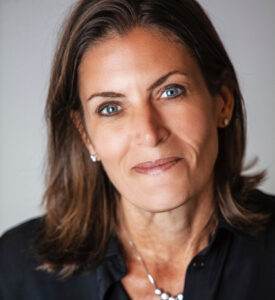Here’s today’s AdExchanger.com news round-up… Want it by email? Sign up here.
RIP, DTC. LUV, ATT.
The Q1 earnings reports for 2022 are starting to trickle in, and young DTC brands are still suffering under the weight of their marketing costs following the hit from Apple’s ad policy changes.
Manscaped, the men’s grooming brand, grew revenue by $87 million year-over-year, outpacing a $47 million jump in the cost of sales. Those are encouraging numbers. Unfortunately, however, Manscaped also saw a $164 million increase in marketing costs.
Warby Parker grew revenue by $170 million in 2021 compared to 2019. But in 2019, Warby Parker had just reached breakeven. Last year, Warby was $144 million in the red and attributed the bad slip in profitability to higher stock-based compensation costs and, you guessed it, marketing increases.
Solo Brands, a DTC brand holding company that IPO’d last October, spent $40 million in SG&A costs (selling, general and administrative – which includes marketing) in all of 2020. Last year, its marketing costs alone grew by $57 million.
Shares of Solo Brands are down from around $22 last November to just shy of $7 today. Warby Parker shares reached an all-time high of $58.34 in November, but closed trading yesterday down by more than half at $23.79.
Taming The Tube
FreeWheel has announced a new buying partnership with YouTube and YouTube TV.
YouTube is the biggest CTV supplier on the scene, which means advertisers need to account for reach and frequency there if they want a picture of the TV-focused ad ecosystem that reflects reality.
Historically, TV advertisers have “run two systems:” one for YouTube and one for the rest of their buys, Stefan Maris, FreeWheel’s head of global partnerships and business development, tells AdExchanger. FreeWheel’s YouTube integration is designed to standardize those supply silos so advertisers can get visibility into both Google-owned and broadcaster CTV inventory across a single live campaign.
The rollout is also designed to alleviate another prominent CTV problem: frequency capping.
Frequency caps (or the lack thereof) have long plagued streaming viewers.
“Before, there wasn’t a way to frequency cap on YouTube and YouTube live,” Maris says, other than via Google’s DV360 DSP. In other words, you could only frequency cap across Google’s own walled garden.
But the big winner is still Google and not Freewheel, Innovid CTO Tal Chalozin tells Ad Age. Broadcasters haven’t effectively packaged their own YouTube content – and some shows have huge YouTube accounts. If those impressions can be sold in a single platform, broadcasters will bring their own ad sales to YouTube and drive value by packaging the inventory in upfront deals.
Are We In The Upside Down?
The past few years have been all Meta, Apple, Google and Amazon. (Just don’t call them MAGA.)
And Twitter and Netflix just aren’t having it anymore.
In back-to-back weeks, multiple Bizarro World scenarios have come to pass. First was Netflix’s announcement last week that it’s contemplating advertising and plans to introduce an ad-supported tier in the next few years.
Then, on Monday, the will-they/won’t-they drama of Elon Musk investing in…wait, abandoning…WAIT, BUYING Twitter culminated in an agreement by the Twitter board to sell to Musk at $54.20 per share, valuing the company at $44 billion. Twitter will delist from the New York Stock Exchange once the deal is completed.
The valuation is a 38% premium from Twitter’s closing price on April 1, when Musk announced his 9% investment in the company and set off a chain of events that brought an April Fools joke to life.
The acquisition puts an uncomfortable spotlight on Twitter’s ad business. In a since deleted tweet, Musk proposed removing ads for Twitter Blue subscribers. “The power of corporations to dictate policy is greatly enhanced if Twitter depends on advertising money to survive,” he wrote.
But Wait, There’s More!
Unpacking the impact of the EU’s Digital Services Act on digital advertising. [Mobile Dev Memo]
The US Commerce Department signs a cross-border data-sharing and privacy agreement with Canada, Japan, Korea, the Philippines, Singapore and Taiwan. [release]
MParticle’s Michael Katz: Will the CDP be unbundled? [blog]
WPP launches a DTC ecommerce practice. [MediaPost]
You’re Hired!
Brightline hires Mike Bologna as chief accelerator. [B&C]
Ogury makes Simon Porter its global head of trading and agency partnerships. [release]
Amazon vet Toni Reid joins YouTube as product management VP to oversee … YouTube Shorts. [Variety]














